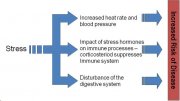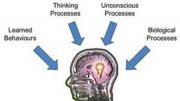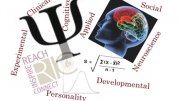
The process of evaluation varies, depending upon the nature of the alleged injuries. A plaintiff's injuries may require only psychiatric and psychological examinations. Alternatively, a more extensive brain-injury evaluation may be necessary if brain function is raised as a legal issue. Each individual's medical records are reviewed prior to the examination to determine the specific assessment that is best suited to the needs of each individual case.
Forensic evaluations generally contain the following components:
- Complete medical history.
- Psychiatric mental status examination.
- Psychological assessment.
- Review of pertinent medical records, discovery and evidentiary deposition transcripts, school records, work product.
Please note that if cognitive status is a question, certain psychiatric evaluations may also involve the administration of specific neuropsychological tests. The precise assessment that is required is determined by the individual needs of the case.
Alleged brain injury, in most cases evaluated by Lexington Forensic Psychiatry, presents with one of three causes:
- Traumatic brain injury.
- Hypoxic-ischemic brain injury.
- Toxic-chemical brain injury.
The brain-injury evaluation process usually has some or all of the following components, in addition to the psychiatric and psychological evaluation and components listed above:
- Neurological examination.
- Neuropsychological assessment.
- Structural/functional brain imaging.
- Laboratory studies.
Medical History
A medial history is obtained regarding the person's injury. For instance, was it a psychologically traumatic injury in a motor-vehicle accident or assault, hypoxic injury due to drowning, perinatal-ischemic brain injury, or exposure to organic solvents? The person's history is explored to determine the impact, if any, the alleged injury has upon the functional activity of the person. Further history is obtained regarding past medical issues that may play a role in the complaint, activities of daily living, past psychiatric history, family history, social history, legal history, military history, and review of systems.Mental Status Examination
The mental status examination is a face-to-face examination between the psychiatric physician and the patient. The purpose of the examination is to determine the function of elements of mental and brain activity. For instance, thought is examined to determine if the person can logically go from point "A" to point "B" in his thinking. Thought is also examined to determine the presence or absence of circumstantial thinking, loose associations, or other determinants of abnormal mental function. Content of the thinking is examined for delusional thoughts, morbid ideas, perceptual distortions, suicidal/homicidal ideas, or other signs of mental pathology. Language is examined for expressive and receptive function, repetition errors, and to determine if the person can properly take mental ideas and convert them to motor acts.Orientation to person, place, and time is determined. Gross memory ability is determined. Evaluation of the mental stream of activity, mood, range of affect, and thought and motor speeds is completed. The mental status examination is a qualitative examination, and quantified elements...
Source: www.timothysallenmd.com
You might also like:
















